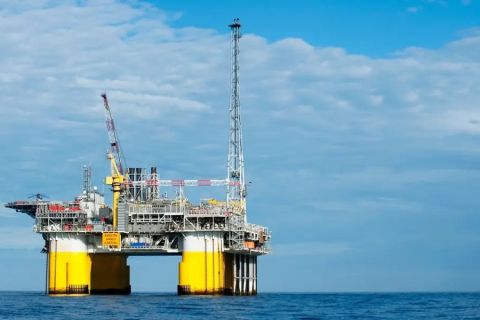U.S. gas exploration and production company Gulfport Energy Corp. on Nov. 18 confirmed that it would cut jobs, change its board and end its share buybacks, in a bid to reverse a slide in its stock price.
Reuters had reported the news earlier in the day, citing sources.
Shares of the Oklahoma City-based company, which fell 7.8% to $2.85 in morning trading, has lost 65% of its market value in the last 12 months, as weak natural gas prices have eroded its profitability and forced it to slash capital investment.
Gulfport, whose production is focused primarily in the Utica Shale in Ohio and Scoop acreage in Oklahoma, also made a new commitment to using excess cash to pay down debt, which totaled $2.1 billion as of the end of September.
The company said it would shed about 13% of its workforce. It also said that Chairman David Houston will not seek reelection to the company's board when his term ends in 2020, with two other directors—Craig Groeschel and Scott Streller—stepping down from Gulfport's board by the end of this year.
Gulfport has been under pressure from hedge fund Firefly Value Partners, its second-largest shareholder, to improve its stock performance. Firefly said in March it would not mount a challenge to Gulfport's board after the company agreed to a share buyback program.
RELATED:
Gulfport Energy Pressured By Hedge Fund To Issue Share Buyback
Firefly had asked Gulfport to buy back $500 million worth of stock, but the company responded with a smaller $400 million program. It ended up buying only $30 million worth of stock in the first nine months of this year, according to company filings.
However, Gulfport spent $80 million to buy back $105 million of its debt in the third quarter, CEO David Wood said on a Nov. 1 analysts call, noting the discount at which the bonds traded made repurchasing them an attractive option. The company also managed to report positive free cash flow in the third quarter.
Firefly declined to comment on the changes announced by Gulfport on Nov. 18.
Some other oil and gas producers, who once spearheaded the U.S. shale revolution, have also struggled with their profitability.
Debt-laden Chesapeake Energy Corp. warned earlier this month that its ability to survive was dependent on gas prices improving in 2020. Antero Resources Corp. announced a $1 billion write-down on its Utica position on Oct. 29.
Recommended Reading
Haynesville’s Harsh Drilling Conditions Forge Tougher Tech
2024-04-10 - The Haynesville Shale’s high temperatures and tough rock have caused drillers to evolve, advancing technology that benefits the rest of the industry, experts said.
Defeating the ‘Four Horseman’ of Flow Assurance
2024-04-18 - Service companies combine processes and techniques to mitigate the impact of paraffin, asphaltenes, hydrates and scale on production — and keep the cash flowing.
Geothermal ‘Could Save the World,’ but Faces Familiar Subsurface Risks
2024-03-20 - CERAWeek panelists discussed hurdles to widespread use of Earth’s heat to generate power — problems familiar to oil and gas operators.
Exclusive: Halliburton’s Frac Automation Roadmap
2024-03-06 - In this Hart Energy Exclusive, Halliburton’s William Ruhle describes the challenges and future of automating frac jobs.
2023-2025 Subsea Tieback Round-Up
2024-02-06 - Here's a look at subsea tieback projects across the globe. The first in a two-part series, this report highlights some of the subsea tiebacks scheduled to be online by 2025.





